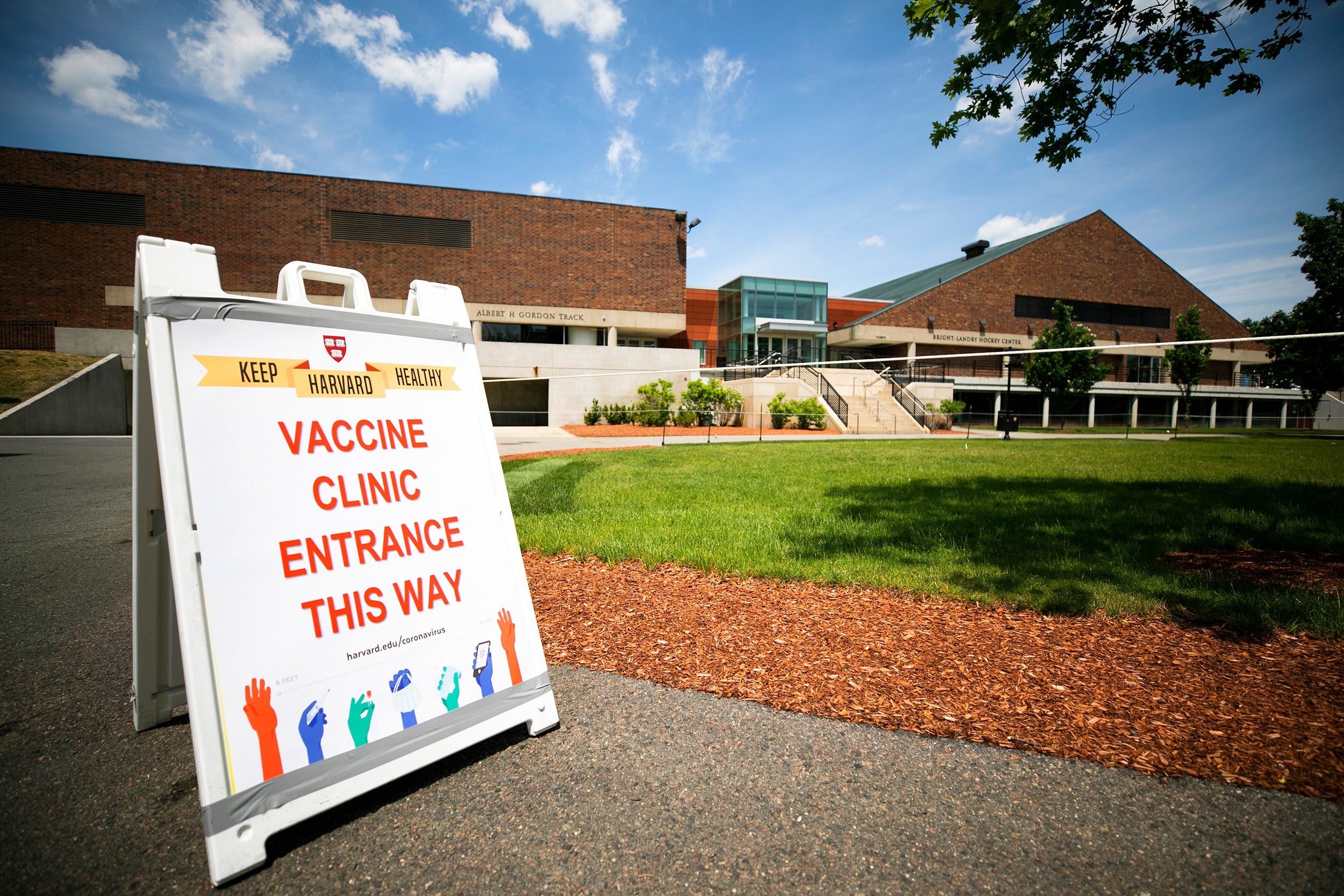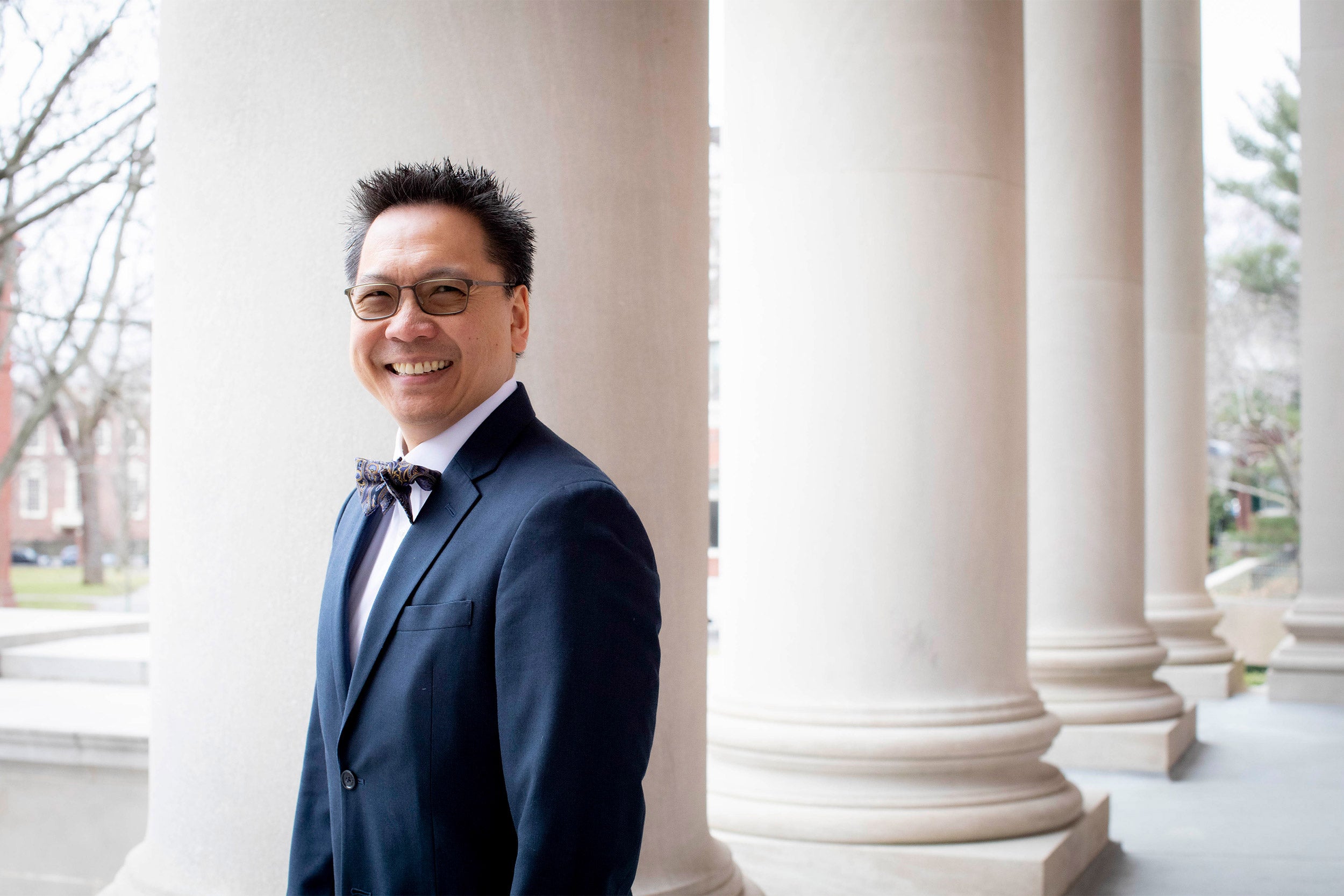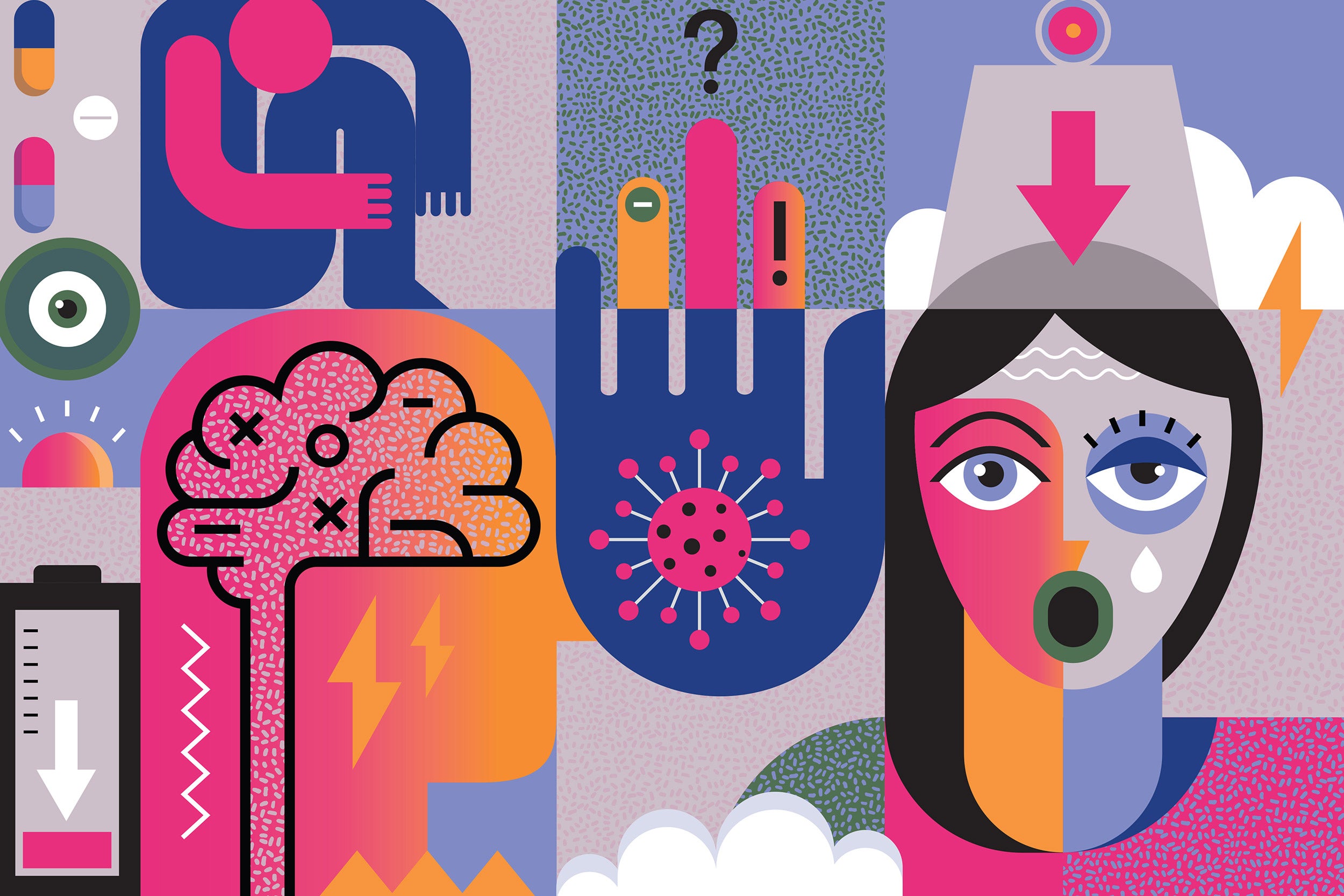
Harvard University Health Services will be offering free vaccine clinics on a regular basis.
Stephanie Mitchell/Harvard file photo
Lifting restrictions, urging vaccination
HUHS director discusses new COVID-19 policies and looks ahead to the fall
With U.S. COVID cases down from the spring but the delta variant emerging as a serious threat, Massachusetts and the country are in a race to vaccinate as many people as possible to lock in the progress that has been made against the pandemic. Harvard, like many other institutions, will begin the fall semester by balancing fewer restrictions with continued monitoring of the virus in the community.
The Gazette spoke with Giang Nguyen, executive director of Harvard University Health Services (HUHS), about the University’s approach to vaccinations on campus, the delta variant, and new guidelines released last week in his message to the community.
Q&A
Giang Nguyen
GAZETTE: Can you give us an update on the presence of the virus on campus right now?
NGUYEN: The epidemiologic situation is looking pretty good both on campus and in Massachusetts. This is very reassuring and is reflective of an overall high level of vaccination in the state. However, our infection rate is not zero. We continue to see some infections appearing, and most new cases nationally and regionally are happening among people who are not fully vaccinated. That is a population that we need to be incredibly cautious about, and I continue to encourage people to seek vaccination. It is not too late to do so.
We are also seeing some vaccinated people being infected, in what the medical community calls breakthrough infections. The good news is that most people who get breakthrough infections are experiencing milder symptoms, but the risk remains in the possibility that they could pass that virus to others who may be more susceptible to severe disease. That said, most of our concern continues to lie with those who are unvaccinated.
GAZETTE: The delta variant is spreading quickly. Do you have any concerns about the new strain?
NGUYEN: I think the rapid emergence of the delta lineage of the virus is one of the biggest challenges that we’re facing in this country and globally right now. This variant is much more contagious than the variants we experienced prior to this, and consequently it has become the dominant form of the virus here in America. It spreads more quickly, it seems to cause much more significant symptoms, particularly among unvaccinated persons, and each time it spreads to another person there comes the risk that it might mutate even further.
Our biggest weapon against the delta variant is to make sure that more people are vaccinated. The vaccines that are currently available seem to work very well with the delta variant. We do know that there are people not yet vaccinated, and I urge them to get vaccinated to protect themselves and others. Being vaccinated protects you, your loved ones, and your community.
GAZETTE: Do you see the delta variant affecting the Harvard campus at all?
NGUYEN: We have to watch it very carefully. The delta variant might slip through the vaccine from time to time, and if that happens it could potentially spread in our community, as it could in any other. So we are continuing to track COVID-19 infections not only on campus but across the Commonwealth.
Giang Nguyen, executive director of Harvard University Health Services.
Rose Lincoln/Harvard file photo

GAZETTE: In your message last week you updated the community on how the University is managing COVID-19 on campus. Can you talk about the policy updates and what changes the University decided to make?
NGUYEN: The first point I made in my message was on vaccine verification. As of now, vaccine information is due for any members of the Harvard community who plan on being in a campus building this fall, even if you have not yet returned to campus today. Instructions for securely submitting vaccine information can be found online. For those who haven’t done it yet, it’s not too late, and HUHS will continue to accept submissions. Even if it’s late we want to know, and we encourage everyone to send that information in.
If you aren’t vaccinated yet and in the coming weeks you do become vaccinated, please share that information when it happens, because again, we need to keep track of how protected we are as a community. For people who are having trouble accessing the vaccine or have concerns about getting your shot, HUHS is offering free vaccine clinics on a regular basis, and has several informational resources on the vaccines. Our goal at HUHS is to support the health and well-being of the entire community, and people should never hesitate to reach out to us for support. The greater level of community vaccination, the more protected we all are.
Another update was that indoor physical distancing requirements have been lifted. Overall, our local communities are well-vaccinated, so we feel that it is reasonable to allow more business-as-usual here on campus. We are still advising unvaccinated people to maintain some distance in whatever way is feasible. But for the most part, physical distancing doesn’t have to be so closely adhered to.
It is also important to note that when returning to campus, people who are fully vaccinated will have fewer restrictions than their unvaccinated counterparts. For example, they will have less frequent viral testing and no quarantine requirements related to contact tracing. They will also be able to participate in and be reimbursed for most official travel without needing special COVID-related petitions. What did not change was the mask requirement. For the time being, everyone is still required to be masked indoors, with the exception of eating and drinking in designated dining spaces and break rooms, or alone in private spaces.
GAZETTE: Your latest message also announced new testing schedules that begin on July 28. At what point did the University decide to implement new cadences?
NGUYEN: As we have noticed tremendous declines in the infection rates in the region, it’s possible now to space out the testing, particularly among people who are fully vaccinated. We know that it’s less likely that people who are fully vaccinated will be infected, and with that in mind we can space out their testing frequency. Testing, even less frequently, still allows us to keep an eye on infections in our community, including among vaccinated individuals.
For unvaccinated people we are not changing the testing cadence, since infections are more likely to occur among unvaccinated members of our community.
“Our biggest weapon against the delta variant is to make sure that more people are vaccinated. … Being vaccinated protects you, your loved ones, and your community.”
GAZETTE: Mask use is still required in Harvard buildings, and some other prevention measures will remain in place. Can you give some insight into how the University will make decisions around pandemic protocols in the coming months?
NGUYEN: Our decisions for the campus as we move forward are going to be guided not only by our estimated campus vaccine rate, but also national, state, and local infection rates at any given moment. As I just mentioned, we were able to lift distancing requirements because our vaccination rates were moving in the right direction. If vaccination rates continue to trend upward, we are hopeful that other protocols, including the masking requirements, can be lifted as well.
Going into the fall we will also be looking at the prevalence of variants that are circulating nationally and regionally, as we are doing with delta right now. All of these things are going to influence our decisions about masking, about testing cadence, and about any other requirements that are implemented on campus.
GAZETTE: What should people expect when they return to campus, and do you have any guidance for making that adjustment?
NGUYEN: I think all of us have been approaching our re-emergence from remote work in different ways. For those who have not been on campus in a while, one good way of estimating how you’ll feel is looking at how you felt going back to the grocery store more frequently, how you felt resuming other activities with family or in your local community. The experiences that you had there are likely to help you feel more comfortable as you re-enter our physical campus. Personally, I recall being somewhat nervous the first time I resumed using public transportation, but now I’m very comfortable commuting to Harvard Square.
Over the last 15 to 16 months we have had far fewer staff, researchers, and students on campus than a typical year, but the campus was far from empty, and the Harvard community has done a great job in maintaining safety in our environment. You can expect that you will likely be as safe on campus as anywhere else, as the state and surrounding communities have lifted restrictions, because we have been very thoughtful and careful in ensuring that we’re thinking first about the safety of our community members as we approach this next phase of re-opening campus more broadly.
But my recommendation to anyone dipping their toe back into campus is that you should pay attention to how you are feeling emotionally and start to re-enter in a gradual way. Come back and just rediscover what this campus and your work environment have to offer and rediscover those relationships that you have with your colleagues. That vibrant community is really what draws us back to Harvard’s campus, and it’s special. I think that most people will feel nervous the first couple days, but after being back here and reconnecting with everyone, things will start to feel a lot more normal.
This interview has been edited for length and clarity.






